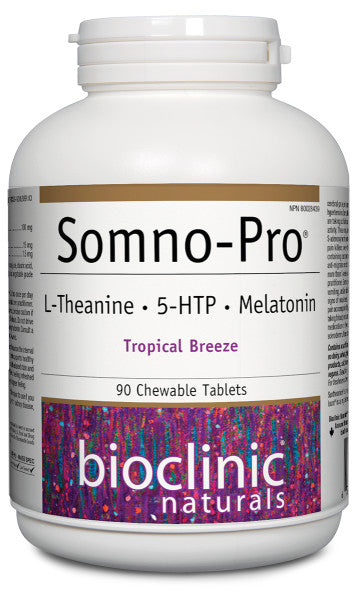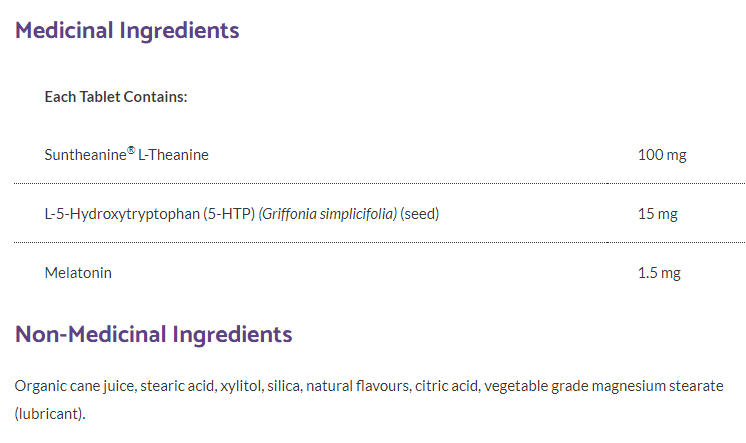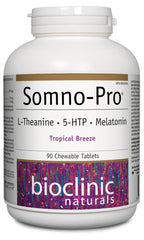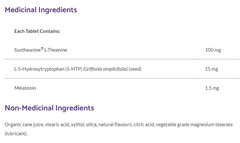



Somno-Pro® L-Theanine · 5-HTP · Melatonin · Tropical Breeze
- 32.99$
0.00$- 32.99$
- Unit price
- per
Description
x- Addresses all facets of insomnia: difficulty falling asleep, difficulty staying asleep, waking up too early in the morning, and difficulty waking up.
- Reduces nervous system arousal, which can inhibit sleep
- Contains Suntheanine®, the most clinically studied L-theanine
- Delicious chewable tablets with tropical fruit flavor
L-theanine, 5-hydroxytryptophan (5-HTP), and melatonin have been shown to independently improve sleep quality and quantity and/or decrease anxiety. L-theanine is an amino acid found almost exclusively in tea that influences the central nervous system through several mechanisms, primarily by influencing levels of the neurotransmitters dopamine, gamma-aminobutyric acid (GABA), serotonin, norepinephrine, and glutamate. These effects cause a significant increase in alpha brain wave activity, indicating a state of wakeful relaxation, increased performance under stress, improved learning and concentration, and decreased anxiety.
5-HTP is the intermediary between L-tryptophan and serotonin, a key neurotransmitter associated with sleep, mood, and anxiety. 5-HTP bypasses the rate-limiting enzyme tryptophan hydroxylase, which normally limits the conversion of tryptophan to serotonin.
Melatonin is also closely related and is formed by the conversion of serotonin in the pineal gland under low light conditions. Known to regulate many biological rhythms, including the circadian cycle, melatonin has shown clinical benefits in inducing sleep or adjusting sleep cycles. Randomized trials have shown that it reduces sleep onset latency and improves perceived sleep quality, without impairing daytime psychomotor performance.
Produits recommandés
Produits récemment consultés
- Choosing a selection results in a full page refresh.



